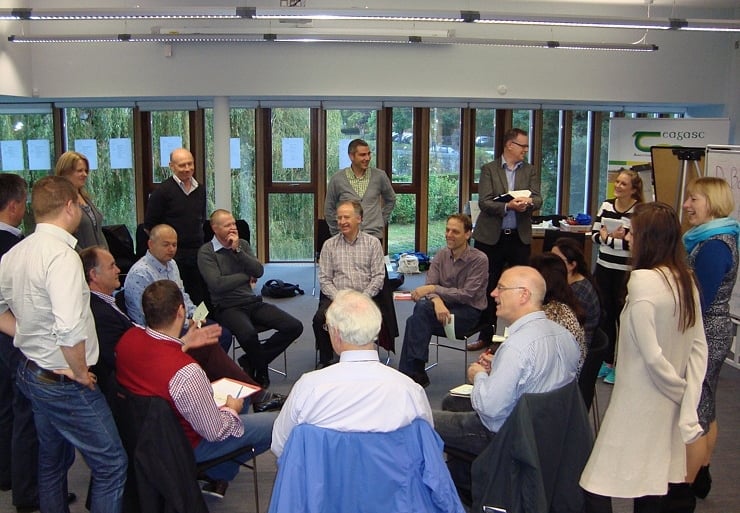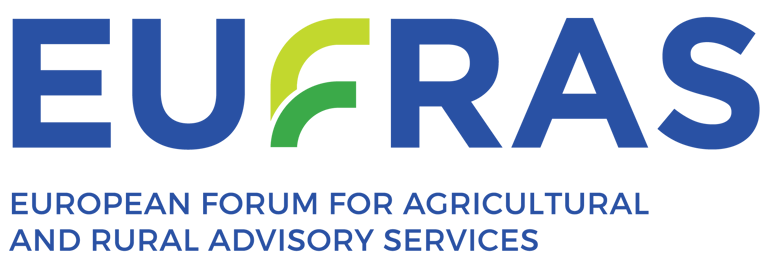CECRA Gains Momentum at EUFRAS Level
In the week of October 6-10, 2015, a group of 17 experienced extension method trainers from six different European countries met for the so-called Fast Track Train the Trainer Workshop at the College for Amenity Horticulture in Dublin. The group’s mission was to understand and absorb the content, ethos and methodology of the Certificate for European Consultants in Rural Areas (CECRA). This mission was successfully accomplished. And even more importantly, during this intensive and involving week the further development of CECRA within EUFRAS gained substantial momentum. To successfully establish CECRA on a European level it is now important to keep up this momentum.
CECRA
10/11/20153 min read


Let it be Fast Track…
The idea for this intensive one-week Train the Trainer workshop was conceived in April 2015 at the IALB – EUFRAS CECRA Workshop in Landshut, Germany, where the foundation of the EUFRAS involvement in the IALB CECRA system was laid.
One step towards the Europe-wide establishment of CECRA is a two-years Train the Trainer Programme to form qualified and accredited trainers who can offer CECRA modules. Whilst such a programme is paramount for countries with a lack of skilled extension method trainers, those EUFRAS organizations that already have skilled personnel at their disposal felt a need to move towards accreditation of CECRA Trainers “on a faster track” – the idea of the FastTrack Training was born.
… and fast it was
Only a few months later, during the first week of October 2015, the CECRA Fast Track Train the Trainer Workshop was implemented. It was a one-time and unique event, un-repeatable in its sophisticated standard and exceptional composition of experienced trainers participating.
With the final goal to become CECRA Partners, the following Six EUFRAS Member Organisations nominated 17 participants:
University of West Hungary, Faculty of Agricultural & Food Sciences
Latvian Rural Advisory & Training Service Centre Ltd (LRATC)
Association of ProAgria Centres, Finland
National Agricultural Advisory Service (NAAS), Bulgaria
Teagasc, Ireland
Lithuanian Agricultural Advisory Service
The workshop was facilitated by Pablo Asensio (State Academy Bavaria) and Olivia Hartmann (AGRIDEA Switzerland) – representing the CECRA label owner IALB – in collaboration with Monica Gorman and Jim Kinsella from the University College Dublin (UCD).
Success at various levels
With such a multinational group of participants and a multinational trainer team in charge of the realization, there were a lot of possibilities for it to go wrong, but it didn’t. All worked out just fine and the training was a success at both individual as well as organizational development level.
Individual learning….
When at the end of the Fast Track CECRA Training the Trainers Workshop 2015 the participants were asked to assess their personal benefit of the past five days, the most frequent answer was: “Progress in my personal facilitation practice.” Other statements stressed the beneficial effect of the cooperative atmosphere: “I understood that I don’t have to be afraid of jumping into the cold water when I am working together with friends.” And even a rather critical participant said: “On the first day I was thinking How will I survive this for five days?! But now I must say it was totally worth it. It was great, I learned a lot and I am motivated to change my way of teaching in adult education.”
Development of a common understanding on key aspects….
At the same time, the extremely motivated group enthusiastically made use of the chance to exchange on important concepts for CECRA trainings and to further develop them. The five days were crucial to establish a common understanding on both how high-quality CECRA trainings should be planned and delivered and on the organizational questions within the CECRA system. Issues such as how to realize participant-orientation and ensure practice-relevance, the qualities of a good farm advisor, the requirements for the accreditation as CECRA Partner and/or Module Provider were dealt with in the workshop.
The very nature of the workshop made it clear that facilitation is a core competence in extension method trainings where personal skills are trained. Training skills can’t be adquired by reading. They have to be trained in practice and in experiental learning including feedback and reflection of behaviour patterns.
Bringing the CECRA endeavour further…
The last day of the workshop was specifically dedicated to furthering the CECRA system. Concrete plans for next steps towards accreditation as CECRA Partners were worked out for all countries present.
It was highly motivating to have so many EUFRAS key-persons gathered in one location, all working towards the same goal. The joint efforts made in the workshop on the one hand yielded results that will be fed into the development of training guidelines for the planned two years Train the Trainer Programme scheduled for 2016/2017. On the other hand, the one-week intensive collaboration created an atmosphere of trust and cooperation that added momentum to the CECRA endeavour on EUFRAS level. To establish CECRA successfully on European level, it is now important to keep up the momentum – within the countries and on international level. A first moment to (re)fuel this momentum will be the IALB Conference in Limerick, IRL, in June 2016.
Last but not least – a big thank you goes to Teagasc, the Irish Rural Advisory Service, who initiated and organized the workshop and provided its classrooms in the new building of the National College of Amenity Horticulture, wonderfully located at the site of the Botanic Gardens in Dublin. Your initiative made it even possible that the Fast Track Train the Trainer Workshop, though originally not undisputed, actually turned out to be a success! Thank you.
Pablo Asensio, Olivia Hartmann


Riga str 34, Ozolnieki, Jelgavas novads, LV-3018, Latvija
Phone: +371 29736468
mail: anita.dzelme@llkc.lv
Requisites:
Biedrība "Eiropas Lauksaimniecības un lauku konsultantu asociācija"
NGO " European Forum for Agricultural and Rural Advisory Services"
Reg nr. 40008219277

